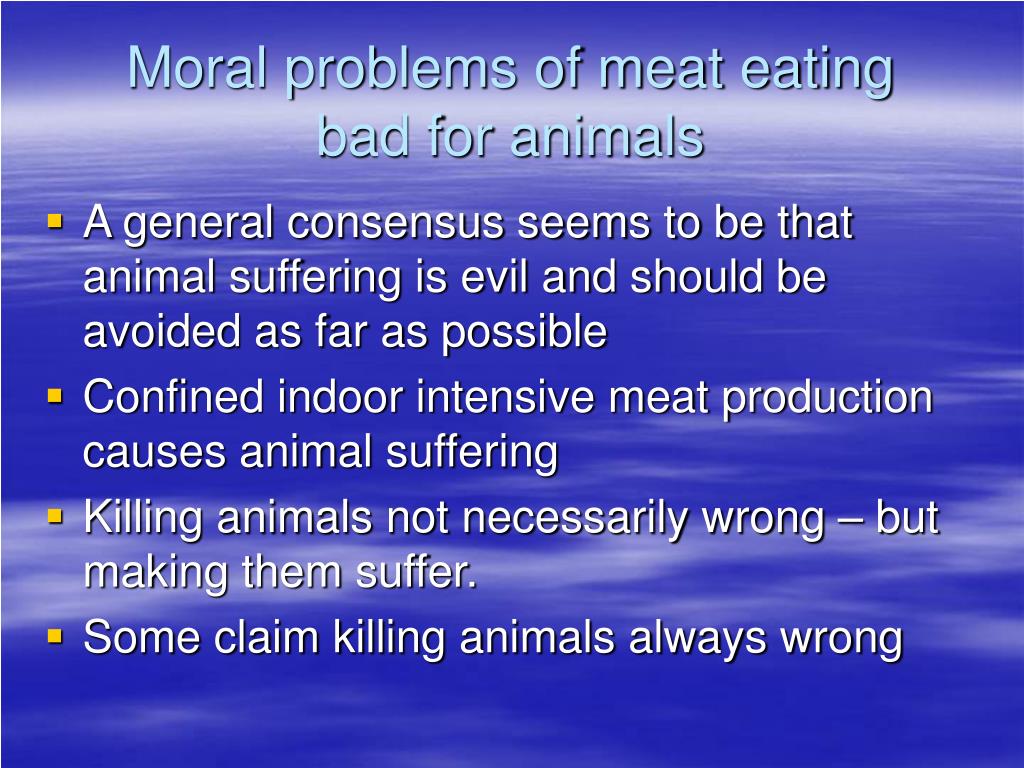The ethical landscape surrounding the consumption of animals is a labyrinthine one, marked by deep-seated beliefs and cultural traditions. The question, “Is eating animals a moral wrong or a natural instinct?” invites us to ponder our place in the ecosystem and the implications of our dietary choices on the sentient beings that share our planet. This dichotomy is not merely philosophical; it poses a profound challenge to our ethical convictions, cultural practices, and individual lifestyles.
Throughout history, the consumption of animals has been seen through various lenses: from utilitarian perspectives that emphasize survival and sustenance, to moral frameworks that advocate for compassion and empathy towards all living creatures. In many cultures, eating meat is interwoven into the fabric of social gatherings, rites of passage, and even religious ceremonies. It has become a staple of human existence, yet this prevalence does not absolve it of ethical scrutiny. Are we merely creatures of instinct, following an ancient pattern of predation, or are we capable of transcending our primal urges for higher moral considerations?
To dissect this query, one must first acknowledge the physiological and psychological components of human beings. On one hand, humans are omnivores, biologically equipped to consume both plant and animal matter. This adaptability can be construed as a natural instinct, honed over millennia for survival. However, instincts often serve a foundational purpose in the wild: sustaining life. With the advent of modern agriculture, technology, and food production systems, survival no longer necessitates the taking of animal life in the same gritty manner as our ancestors experienced. Thus, the pivotal question arises: does the availability of alternative sustenance lessen the moral weight of consuming meat?
Animal sentience compounds the ethical dilemma. Emerging scientific research unequivocally supports the understanding that many animal species possess the capacity to feel pain, experience emotions, and form social bonds. Cows, pigs, chickens, and even marine life exhibit signs of distress and suffering in the face of industrial farming practices. This revelation brings forth an existential question: if animals are sentient beings, do we not owe them a moral obligation to protect them from unnecessary harm? The recognition of their suffering creates a bifurcation in the ethics of eating meat; the argument for natural instinct clashes with the mandate of compassion.
A playful consideration here is whether humans possess the unique ability to rationalize their dietary choices. While other animals act purely on instinctual drives, humans can reflect on the moral implications of their actions. This introspection places us at a crossroads: we can either embrace our responsibility as stewards of the earth or descend into apathy, ignoring the plight of countless creatures. Advocates for plant-based diets have increasingly drawn attention to the environmental consequences of animal agriculture, a factor that complicates the ethics of meat consumption further. The ecological ramifications—deforestation, overfishing, greenhouse gas emissions—raise valid concerns about our impact on the planet.
This leads us to contemplate the implications of tradition versus progress. Cultures that have relied on animal husbandry for generations often struggle to reconcile these historical practices with contemporary ethical considerations. Culinary traditions tied to meat consumption face scrutiny as society grows more aware of the environmental and ethical consequences of meat production. Yet, the challenge comes not only from the entrenched practices themselves, but also from societal sentiment, which can be resistant to change. Questions of identity, heritage, and cultural values become entangled in the ethical considerations surrounding meat consumption.
Moreover, one must also consider the economic implications of shifting dietary practices. The meat industry provides livelihoods to countless individuals globally, from farmers to retailers. The challenge lies in transitioning towards more ethical practices without causing undue harm to those whose economic well-being is interlinked with traditional methods. Is it fair to advocate for change at the expense of others? Herein lies a poignant moral quandary—balancing the welfare of animals with the socio-economic realities faced by humans. Could a more ethical framework for animal agriculture be devised that respects both moral obligations and economic livelihoods?
The discussion surrounding the ethics of consuming animals ultimately circles back to a fundamental question of what constitutes a life well-lived. What does it mean to live ethically in relation to other inhabitants of this planet? As consumers, we hold power over the market—our choices can dictate practices within agriculture, influencing everything from animal welfare to environmental conservation. Acknowledging the agency in our dietary choices invites a potential shift in societal norms toward a more conscientious interaction with food sources.
In conclusion, the question of whether eating animals is a moral wrong or a natural instinct is neither simple nor straightforward. It intertwines ethical reasoning with cultural traditions, environmental stewardship, and economic realities. Awareness of the complexities involved prompts individuals and societies to engage in meaningful dialogues surrounding their food choices. Are we prepared to challenge the status quo and consider the moral implications of our diets? As we navigate the ever-evolving landscape of human-animal relationships, it becomes increasingly imperative to thoughtfully deliberate on the ethics of our dietary habits, bearing in mind the legacy we wish to leave for future generations.








